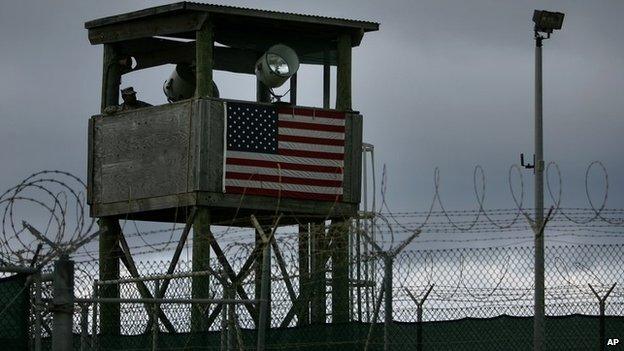CIA interrogation report: An expert guide
- Published

The report on CIA activity covers policy at the Guantanamo Bay detention camp
The release of the Senate Intelligence Committee's report into the CIA's detention and interrogation programme shines a light into the darkest corners of the Bush-era "war on terror".
Although the programme's existence has been well-known for years now. the level of detail contained in the 480-page summary, external offers a new insight into the work of the CIA.
It also probes the extent to which the programme was accepted at the highest levels of government.

9/11 attacks
The authors of the report describe how Mr Bush began to set the foundation for a secretive detention programme within a week of the terrorist attacks.

The CIA's interrogation program began soon after the 9/11 attacks
They wrote: "September 17, 2001, six days after the terrorist attacks of September 11, 2001, President George W Bush signed a covert action Memorandum of Notification (MON) to authorize the director of central intelligence (DCI) to 'undertake operations designed to capture and detain persons who pose a continuing, serious threat of violence or death to U.S. persons and interests or who are planning terrorist activities.'"

Who knew?
One of the biggest questions about the CIA detention programme is who knew what - and when - about the harsh treatment of detainees and the use of "enhanced" interrogation methods.
The report says: "The CIA did not brief the leadership of the Senate Select Committee on Intelligence on the CIA's enhanced interrogation techniques until September 2002, after the techniques had been approved and used."
Former CIA officials - those who were involved in the programme - agree on the timing of their briefings to Congress about the programme.
Yet the former CIA officials describe things a bit differently. Several years ago John Rizzo, the former acting general counsel of the CIA, told me that the leaders of Congress knew exactly what the CIA officers were doing with the detainees at the black sites - and didn't object.

President Bush: An uneasy supporter?
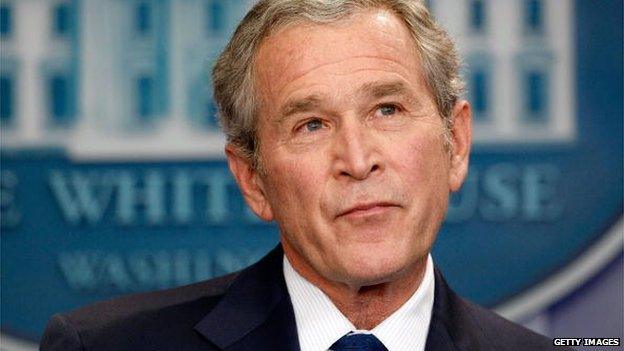
The report covered CIA operations under former President George Bush
President Bush has said that he supported the harsh interrogations. He wanted to protect the US from another al-Qaeda attack.
Yet the report states he was not always enthusiastic about the tactics: "According to CIA records, when briefed in April 2006, the president expressed discomfort with the 'image of a detainee, chained to the ceiling, clothed in a diaper, and forced to go to the bathroom on himself.'"
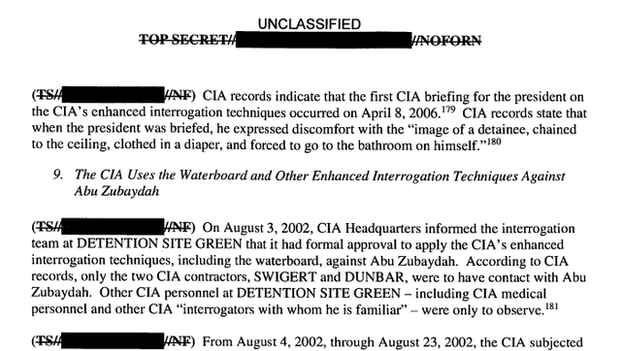

Abu Zubaydah: CIA guinea-pig
One of the most important case studies in the report is the one about a Saudi-born detainee named Abu Zubaydah - one of the first prisoners to be subjected to waterboarding.
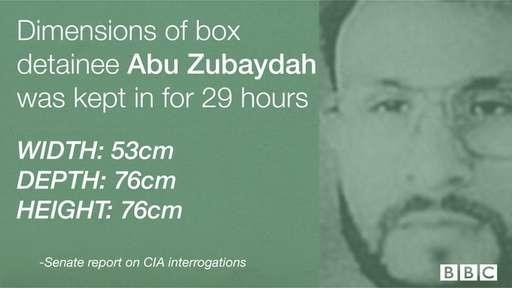
The report provides new details about his treatment and says CIA officers concluded that he "should remain incommunicado for the remainder of his life".
This could have given the CIA officials more freedom to subject him to harsh treatment, since they believed he would never have a chance to provide an account of what happened to him.
Zubaydah, who was captured in Pakistan in 2002, is now held at Guantanamo's Camp Seven, an area that is off-limits to journalists.
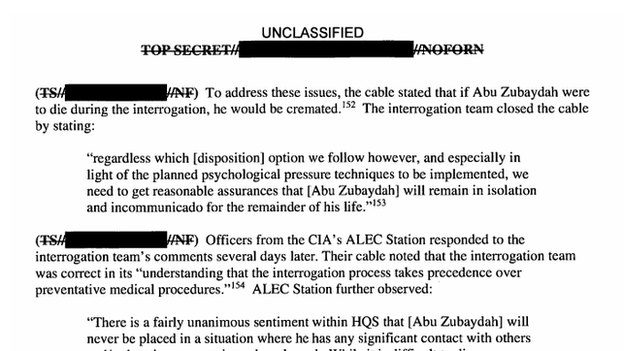

Caught on camera:
John Rizzo, formerly of the CIA, has acknowledged that videotapes made of the interrogation of Abu Zubaydah were "tough to watch".
Yet the report reveals new details about what the videotapes portrayed - and why they were disturbing.
In a heavily redacted section, the authors write that during one interrogation Zubaydah became "unresponsive, with bubbles rising through his open, full mouth".
The videos have been destroyed. As of this date, the Senate report provides the most comprehensive account of what the videos showed.
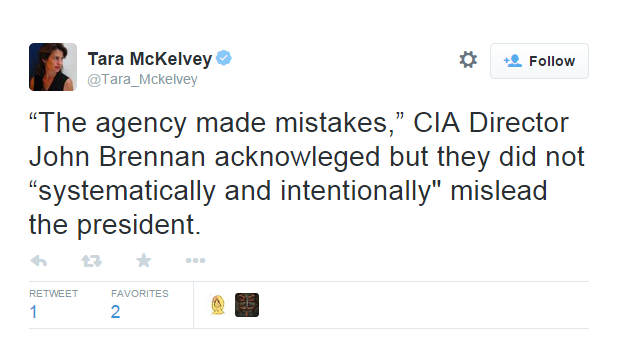

Who led the probe into CIA spies?
Democratic Party Senator Dianne Feinstein, chair of the Senate Intelligence Committee, is the first woman to hold the vaunted position of overseeing 16 intelligence agencies.
The California native, born in 1933, attended Stanford University and began her career in politics in 1969 when she was elected to the San Francisco County Board of Supervisors.

Dianne Feinstein has been a staunch critic of US intelligence excesses
During her career, Ms Feinstein has championed legislation banning the manufacture, sale and possession of military-style assault weapons as well as bolstering security measures at more than 300 US seaports.
She has also been a staunch critic of US intelligence over-reach, publicly criticising the National Security Agency's monitoring of the national leaders of American allies.
But her most high-profile fight of late was the committee's six-year review of thousands of CIA documents, which concluded the rendition, detention and interrogation practices of the George W Bush administration were ineffective.
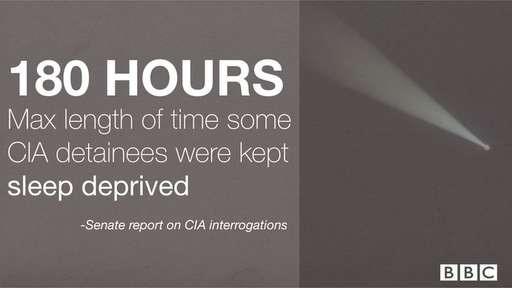

'I was hanged from a wall'
Libyan Islamist Abdul Hakim Belhaj told the BBC two years ago that he had been tortured:
"I was kidnapped at Bangkok airport and my family and I were tortured by the CIA and of course this continued when I was handed to the Libyan authorities.
"I was tortured but what was more agonising is what happened to my ill and pregnant wife back then.
"When we were detained in Bangkok airport we stayed for days in a small cell that was very crowded. My wife was brutally tortured. I was beaten, hanged from a wall. I was put under so much psychological pressure during my interrogation. "

Why did nobody act?

John Rizzo, a former CIA lawyer, wrote a book touching on his time at the agency
As ex-CIA lawyer John Rizzo wrote in his book, "the bipartisan leadership of Congress (the so-called Gang of 8) had been briefed by the CIA on the newly approved techniques, including waterboarding, and expressed no concern whatsoever".
His account raises questions about the congressional leadership. Why didn't they say at the time that they believed the harsh interrogation methods were wrong?
Members of Congress could have told Rizzo and the other CIA officials that they didn't want the detainees to be treated like this.
- Published9 December 2014
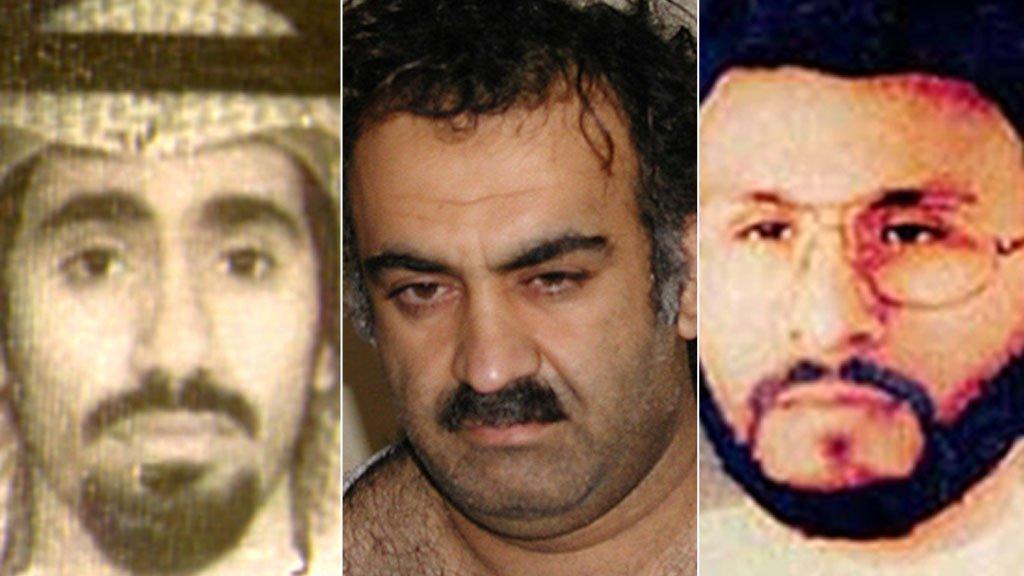
- Published9 December 2014
.jpg)
- Published9 December 2014
